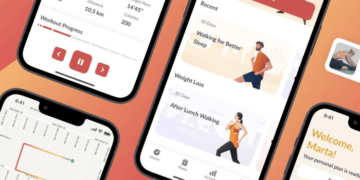So, get this – in 2023, there were about 6 billion cases of data breaches worldwide. It’s crazy, right? With our lives being so tied up with digital stuff, these breaches have basically become the boogeyman of the internet. Big companies getting hit affect millions, and even the smaller breaches can mess with our privacy bit by bit.
Here’s the deal: anyone can be a victim, no matter how careful you are. But don’t freak out just yet! Knowing your legal rights, potential claims, and defenses can actually give you some power if your data gets compromised.
That’s where this guide comes in – it’s your roadmap to navigate the digital chaos and take charge to keep yourself safe after a breach. So, buckle up, and let’s dive into this digital minefield together!

Demystifying Data Breaches
So, here’s the lowdown: Data breaches happen when sneaky folks get their hands on personal info without permission. It’s like an unwanted guest at your digital party. Hacking, malware, and phishing scams are the usual suspects – they either break in or trick you into giving up your secrets, like your login info.
And guess what? Those shiny credit card numbers are like magnets for these cyber crooks.
But it’s not just about money; medical records, social security numbers, addresses – everything’s fair game. The fallout for victims? It’s a rollercoaster, from financial theft to pretending to be you at the doctor’s office. And let’s not forget the embarrassment and damage to your good name if your private stuff goes public.
Living in today’s web of connections means one breach can mess with millions all at once. While being on your toes online helps, the truth is that anyone cruising the internet can get caught up.
Getting what data breaches are all about can give you the upper hand – spotting trouble and doing something about it if you find yourself in the middle of a cyber mess.
Protecting Yourself in the Digital World
While data breaches may seem ubiquitous, there are proactive steps individuals can take to minimize their vulnerability.
First up, give your accounts superhero-level protection with strong and unique passwords. And if you can, throw in multi-factor authentication – it’s like adding an extra lock to your digital door.
Watch out for those tricky phishing attempts, especially in your emails or texts. They might ask you to spill the beans on your credentials but don’t take the bait. Get some serious security software to be the bouncer for your devices and lock down your sensitive info with encryption. Public WiFi? It’s like a busy street – be cautious out there.
Keep an eagle eye on your accounts and credit reports. If anything smells fishy, dive in and investigate. And here’s a cool tip: sign up for those breach notification services. They’ll shoot you a heads-up if your info ever takes an unauthorized detour.
Listen to the experts, too. The FTC and state attorneys general have some solid advice on handling your digital footprint. Remember, there’s no one-size-fits-all shield, but if you mix some street smarts, beefed-up security, and knowing the risks, you’re putting up a good fight against becoming a data breach victim.
Responding to a Breach: Taking Control When Your Data is Compromised
If you discover you are the victim of a data breach, swift action is critical to protect yourself. Immediately change any compromised passwords and alert affected companies.
Report the breach to authorities and monitor your accounts and credit reports for suspicious activity. Freeze your credit if needed to block fraud. Gather details and document the incident in case you need evidence for legal action later. Consider signing up for credit monitoring or identity theft protection services to remain vigilant against financial and medical fraud over the long term.
While data breaches create frustration and vulnerability, you are not powerless. Taking control of the response and implementing safeguards can mitigate damage. With the right precautions, you can still emerge safely even when your data is compromised.

Seeking Legal Recourse with a Fairfax Criminal Attorney
If you become the victim of a data breach resulting from malicious criminal activity or negligence, you may have legal options to pursue compensation. A Fairfax criminal attorney can evaluate your case and determine if you have viable grounds for civil action.
For example, class action lawsuits against companies are common following major breaches seeking damages for consumers impacted. If the breach stems from intentional illegal hacking or theft of data, your attorney can push for criminal prosecution of the perpetrators.
They can also advise if you have grounds to sue for negligence if a company fails to take reasonable safeguards. Navigating complex data breach litigation requires highly skilled legal guidance.
A Fairfax criminal attorney has the expertise to demonstrate harm, prove liability, and vigorously advocate for the maximum recovery in your case.
In Conclusion
Data threats are the cost of living in an interconnected world. But with care, precaution, and awareness of your legal options, you can still control their privacy fate. Take proactive measures, stay vigilant, and know your rights if disaster strikes. With wisdom, we can claim our digital future and secure our most precious asset – our data.













































